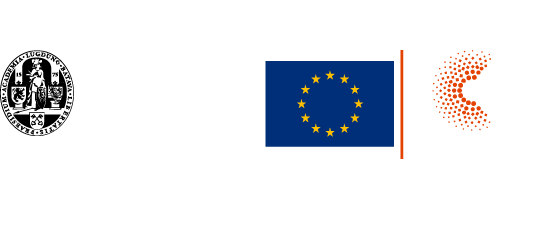
As part of the Annual STS-MIGTEC Workshop, Ildikó Z. Plájás, together with Nina Amelung and Pedro Neto (Institute of Social Science, University of Lisbon, Portugal) co-convened the Panel Multi-modal interventions: the promises and challenges of creative and collaborative engagements with matters of migration, borders & technology.
Abstract
How do multiple forms of engagements with border and migration control regimes imagine and make a difference on the matters they critically engage with? This panel aims to explore diverse approaches and methodologies of critical epistemic engagements and interventions with matters of migrations, borders, and technologies. With multi-modal interventions, we refer to research engaging with creative audio-visual utterances focussed on the themes outlined above, which span across the broader spectrum of media genres and formats (including e.g. installations, documentary, film, podcasts, soundscapes, memes, graphic novels, mapping exercises). Of interest are epistemic interventions that may have the potential to make a difference in practice, including in the living conditions of migrants, as well as conceptual reflections on such collaborative, and researcher- or practitioner-led initiatives. We welcome a diversity of approaches with regards to the purposes and ambitions of interventions, but also with regards to their methodologies and formats.
This may include:
Approaches trying to create reflexivity on border control technologies and infrastructures in order to influence the design and implementation processes;
Interventions to transcend (in)visibilities of matters of ethics, justice, and inequalities deriving from technologies and infrastructures of migrations;
Critical reflections on how to navigate through collaborations with research participants amidst hierarchical power relations, conflicting agendas, and different epistemic practices;
Reflections on the performativity of migration scholars’ epistemic interventions, such as reflections on the questions of multiple roles academics may have as scholars, academic experts, policy advisers, activists, or artists;
Interventions that aim at amplifying and/or empowering migrants’ use of technologies and infrastructures;
But also engagements which aim to stimulate alternatives to current migration regimes.
We are also explicitly interested in the diversity of research and dissemination designs, and the diversity of methodologies collecting and analyzing data, including (participatory) action research, visual and multimodal ethnography, digital and other creative methodologies.
We encourage submissions from all disciplines (including STS, media/communication, critical data, anthropology, and/ or geography) which are either empirically grounded practice-based interventions (incl. film, participatory methodologies, art installations, performances); case studies of concrete engagements, and interventions; or, theoretical papers exploring scholars’ many ways of engaging with matters of migration, borders & technology.
Paper presentation:
Short documentary film “13 Square Meters”. Kamil Bembnista, Brandenburg University of Technology in CottbusSenftenberg, Germany
Redistribution and engagement in asylum research: Asylos’ Knowledge-based activism. Jasper van der Kist, University of Manchester, UK
An Archeology of Borders. The role of contemporary European cinema in the understanding of borders as sites of personal and collective mnemonic negotiation. Jaime Vargas, University of Pompeu Fabra, Spain
The silent sounds of incarceration: Gamifield escape and media scarcity. Stephen J. Neville, York University, Canada & Greg Elmer, Infoscape Research Lab, X University, Canada
Re-imagining Mobility: Stitching Together the View from the Gateway to Europe. Anna Finiguerra, Queen Mary University of London, UK

 The Algorithmic Security
The Algorithmic Security 